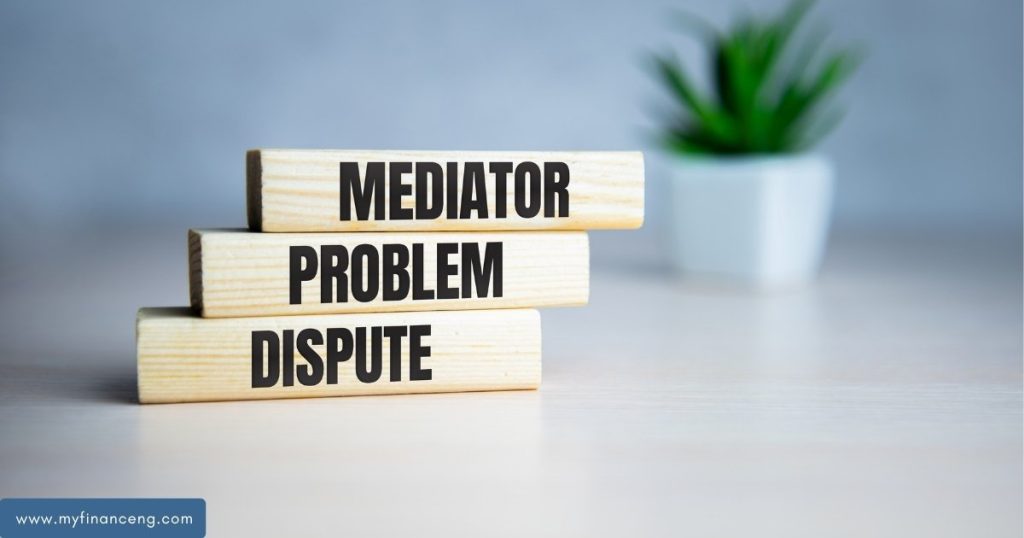Introduction
Learn how structured settlement debt collectors can help ensure timely payments, resolve disputes, and provide financial solutions for recipients.
Structured settlements are a great financial solution, especially if you have already settled a lawsuit in or from personal injury, workers’ compensation, or other cases.
But once that’s all settled, there’s frequently the untimely appearance of structured settlement debt collectors, which can be confusing and frustrating for recipients.
Though the debt collector is widely misunderstood, it needn’t be the enemy of the people. This article examines how structured settlement debt collectors may positively preserve financial security for all parties.
What is Structured Settlement localctx?
A structured settlement is an annuity awarded to someone who has won a personal injury claim. The agreement is referred to in many legal cases, such as personal injury lawsuits, where future medical care or lost wages are to be funded.
Since the 1970s, structured settlements have offered financial protection by ensuring a stable income. They help guarantee that a claimant doesn’t spend all their funds on medical treatments or living expenses.
Debt Collectors and Their Influence on Structured Settlements
Laws of structured settlements and structured settlement loans. A debt collector for a structured settlement is responsible for enforcing the settlement.
These debt collectors will most likely come calling when payments are missed, late, or not made according to the settlement terms.
Their role is to act upon and represent simultaneously between the payee and the payer to ensure that the agreement is warranted.
Why People Hate Debt Collectors

Debt collectors have been synonymous with the bad guys in movies and the news for decades. This bad press is usually the result of strong-arm methods used by industry-based debt collectors, whose goal is typically to get money out of past-due accounts.
Such practices have made debt collectors enemies, even when they do their job to ensure that settlements are upheld.
All Debt Collectors Are Not Equal
However, there are debt collectors who do not engage in aggressive or unfair tactics. The job of structured settlement debt collectors is far more centred on the prudent handling of financial contracts.
They are dedicated to getting the bills paid and, where necessary, providing manageable payment schedules for anglers who are part of the struggling class.
Their job is to defend both sides of the deal by making sure you each honour any contracts you sign.
When a Structured Settlement Debt Collection Agency Can Help
Structured settlement debt collectors can be handy in a few cases. When annuitants are having trouble making their regular payments, the collection agency can often intervene once again to resolve any arrears or work out other payment terms.
Their participation ensures that the financial security offered with the structured settlement remains in force and the claimant receives the economic recovery they deserve.
The Legal Protection for One or Both of the Parties
Laws such as the Fair Debt Collection Practices Act (FDCPA) and other statutes safeguard the rights of the debtor while ensuring that creditors are not discriminated against.
These laws regulate how debt collectors can contact debtors, what they can say, and what they can do.
Structured settlement accounts receivable buyers will ensure that when following these guidelines and when they go to collect, the payee and /or the payer are treated legally.
How Structured Settlement Debt Collectors Preserve the Integrity of Contracts

One of the top things structured settlement buyer companies do is stand for the sanctity of the settlement contract. They work to maintain the contract and keep payments on track.
They keep the settlement between both sides so that the payee gets paid how they wish and the payer doesn’t break their deal.
Creditors in Structured Settlement Sales and the Stability of Social Insurance
Regular and timely payments are critical to an individual’s financial security after receiving a structured settlement.
Without recurring payments, a claimant might be left without resources to pay for continuing medical expenses, living costs, or other financial obligations.
Structured settlement collectors also help guarantee a timely payment schedule, offering recipients financial security and peace of mind.
Why You Should Work with a Structured Settlement Debt Collector
In some cases, debt collectors — particularly those dealing with structured settlements — can provide recipients with flexible payment terms if they’re struggling.
Considering the payee’s current financial situation, they can negotiate more reasonable deals that reduce the amount or frequency of payments.
These negotiations can offer considerable relief to an individual in economic despair, but without any detriment to the final settlement of the case.
What a Structured Settlement Debt Collection Company Can Do For You
The collectors of structured settlement debt do more than collect money—they offer solutions. They work with clients to find solutions, such as renegotiating payment schedules or entering gift payment plans.
Their experience with debt negotiation makes them adept at finding innovative ways to satisfy both sides of the equation while respecting the settlement’s integrity.
The Function of Mediation in the Settlement of Disputes

Mediation is a powerful tool when you are at odds with the structured settlement debt collector. Mediators also help both sides achieve a reasonable middle ground to avoid expensive and bitter litigation and promote constructive communication.
With the help of a lawyer or mediator, structured settlement debt collectors can work toward a solution to debtor issues that may otherwise escalate to additional problems or legal measures.
Better Communication with Your Structured Settlement Debt Collectors
Preventing misunderstandings with debt collectors relies on clear lines of communication. The more upfront and proactive you are, the higher the probability that the debt collector will continue to work with you.
If you communicate early and clearly about any challenges you have in making payments, you can achieve better results and more flexible solutions.
Debunking the Myths of the Structured Settlement Debt Collectors
Several myths are associated with debt collectors as they pertain to structured settlements. For example, some believe that debt collectors have carte blanche to take people’s property or take ruthless actions.
Yet structured settlement lenders face tight legal constraints and few options for action. These collectors are felons’ pelicans more prone to work with those in debt than to brutalize them.
When to Contact a Professional

In other cases, you may need to consult a lawyer if you believe structured settlement debt collectors are not treating you fairly or violating your rights.
The lawyers can advise you on your rights and how to deal with challenging settlement disagreements. Consulting an attorney makes sure you have the fullest protection of the law.
When Structured Settlement Debt Collectors Go Too Far
And while, for the most part, debt collectors stay within the law, rogue ones do pop up here and there. If you are experiencing abuses of your rights, then it’s essential to contact an attorney.
Knowing when a debt collector has overstepped can help save you from unnecessary financial and emotional stress.
Conclusion
Debt collection companies that buy structured settlements aren’t, by nature, the enemy of those who need to sell structured settlements.
They ensure settlements are made and everything is on the up-and-up so no one gets screwed.
Understanding their place, remaining transparent, and knowing what you’re entitled to allows you to change how you view debt collectors from ‘enemy’ to ‘ally’.

